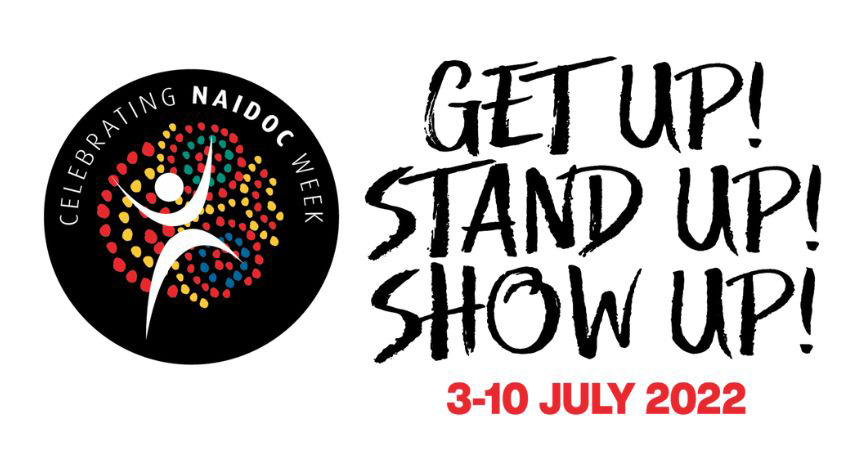
Central West Hospital and Health Service is encouraging Central West residents to celebrate NAIDOC Week across the region with a range of events planned in participation with several organisations.
NAIDOC Week this year falls between 3–10 July and has the theme – Get up! Stand up! Show up!
Central West Health Executive Director of Aboriginal and Torres Strait Islander Health Dan Carter said this year’s theme urged all Australians to support and secure institutional, structural, collaborative, and cooperative reforms.
“You can show your support for justice and equal rights by supporting your local First Nations communities through activities and events held across the state,’’ Mr Carter said.
“This is a time for all Australians to learn about and celebrate the rich history and culture of our First Nations peoples and amplify their voices to continue in the fight for change.
“This year’s theme also calls for celebration of the many who have driven and led change in our communities over generations – they have been the heroes and champions of change, of equal rights and even basic human rights.
“It means that the culture and values of Aboriginal peoples and Torres Strait Islanders are respected equally to the cultures and values of all Australians.’’
Mr Carter said Central West Health was participating in several activities across the region in partnership with Central Queensland Indigenous Development, Red Ridge the Label, Longreach Regional Council, Anglicare, LATSIC and RESQ Plus Pty Ltd.
- 6 July: from 10 am at CQID, 39 Duck St, Longreach, craft activities and morning tea.
- 7 July: Indigenous food, art, and Red Ridge the Label collection, from 3 pm at the Lodge on Hawthorn, Hawthorn St, Blackall. RSVP to Cecele Pitt on 0447 601 273 by 4 July.
20 July: from 10 am at CQID, 39 Duck St, Longreach, craft activities, fashion show, march and lunch.
Mr Carter said Central West residents and schools also could get involved in NAIDOC Week by organising their own events.
“For instance, you could post NAIDOC and other First Nations posters around your classroom or workplace,’’ he said.
“Or you could research the traditional Indigenous owners in your area, or study Aboriginal and Torres r arts and crafts or hold a flag-raising ceremony.
“You could invite local Aboriginal Elders to speak or give a Welcome to Country at your school or workplace, invite Aboriginal or Torres Strait Islander dancers to perform, or learn the meanings of local Aboriginal place names and word.
“You could also run an art competition for your school, community or workplace.
“The options are endless, and I encourage everyone to get involved where they can.’’
Mr Carter said NAIDOC Week provided an opportunity for all Australians to join and recognise the outstanding achievements of Aboriginal and Torres Strait Islander peoples and the valuable contributions they continued to make to the region, the state and the country.
- NAIDOC stands for National Aborigines and Islanders Day Observance Committee.
- Its origins can be traced to the emergence of Aboriginal groups in the 1920s which sought to increase awareness in the wider community of the status and treatment of Indigenous Australians.
- For more information on NAIDOC Week visit: https://www.naidoc.org.au/.